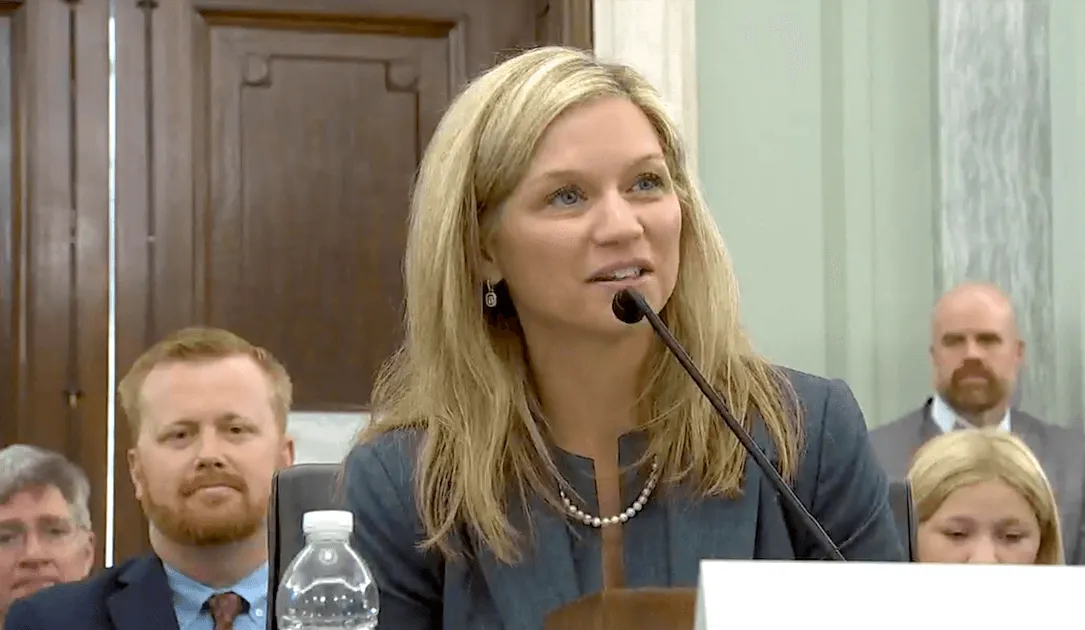AI Regulation Balancing Act: FTC's Measured Approach to Tech Innovation
Companies
2025-04-23 13:13:42Content

In a bold stance on technological advancement, Melissa Holyoak, a Republican commissioner at the Federal Trade Commission, is championing a pro-innovation approach to artificial intelligence. She emphasizes the agency's commitment to fostering AI growth, pledging to avoid overzealous enforcement and unnecessary regulatory barriers that could stifle technological progress.
Holyoak's vision signals a balanced approach to AI development, focusing on creating an environment that encourages innovation while maintaining responsible oversight. Her statement underscores the FTC's intent to support emerging technologies without imposing restrictive measures that might impede the rapid evolution of artificial intelligence.
AI Regulation Unveiled: A Delicate Balance Between Innovation and Oversight
In the rapidly evolving landscape of technological advancement, the Federal Trade Commission stands at a critical crossroads, navigating the complex terrain of artificial intelligence regulation. The ongoing dialogue surrounding AI governance has sparked intense debates about the delicate balance between fostering innovation and implementing necessary safeguards.Pioneering the Future: Intelligent Oversight in the Digital Age
The Regulatory Landscape of Artificial Intelligence
The emergence of artificial intelligence has transformed multiple sectors, challenging traditional regulatory frameworks and pushing the boundaries of technological innovation. Federal Trade Commission member Melissa Holyoak represents a pivotal perspective in this intricate ecosystem, advocating for a nuanced approach that prioritizes technological growth while maintaining critical consumer protections. Regulatory bodies face an unprecedented challenge in creating frameworks that neither stifle technological progress nor expose society to potential risks. The delicate dance between innovation and oversight requires sophisticated understanding of emerging technologies, predictive risk assessment, and adaptive policy-making strategies.Balancing Innovation and Consumer Protection
The fundamental challenge lies in creating regulatory mechanisms that protect consumers without impeding technological advancement. Holyoak's stance emphasizes a collaborative approach, suggesting that excessive regulation could potentially hamper the transformative potential of artificial intelligence across various industries. Technological ecosystems thrive when innovation is supported by intelligent, flexible regulatory frameworks. This approach requires continuous dialogue between technology developers, policymakers, and consumer advocacy groups to ensure comprehensive understanding and balanced implementation of guidelines.Strategic Approaches to AI Governance
Developing effective AI governance requires multifaceted strategies that address technological, ethical, and economic considerations. Policymakers must cultivate environments that encourage responsible innovation while establishing clear boundaries that protect individual rights and societal interests. The complexity of AI regulation demands sophisticated approaches that go beyond traditional regulatory models. This includes developing adaptive frameworks capable of responding to rapid technological changes, creating mechanisms for ongoing assessment, and fostering collaborative relationships between regulatory bodies and technological innovators.Economic and Technological Implications
The potential economic impact of intelligent regulation cannot be overstated. By creating supportive environments that encourage responsible innovation, regulatory bodies can help position nations at the forefront of technological advancement while mitigating potential risks associated with unregulated AI development. Comprehensive strategies must consider long-term implications, including workforce transformation, ethical considerations, and potential societal disruptions caused by advanced technological systems. This requires holistic approaches that integrate technological expertise with broader social and economic perspectives.Future Perspectives on AI Regulation
As artificial intelligence continues to evolve, regulatory frameworks must remain dynamic and responsive. The approach advocated by leaders like Melissa Holyoak suggests a future where innovation and oversight coexist harmoniously, creating environments that maximize technological potential while protecting fundamental human interests. The ongoing dialogue surrounding AI governance represents a critical moment in technological development, where thoughtful, nuanced approaches can shape the trajectory of future innovations. By maintaining a delicate balance between encouraging technological progress and implementing necessary safeguards, regulatory bodies can help create more robust, responsible technological ecosystems.RELATED NEWS
Companies

Local Powerhouse Mulzer Breaks Ground: New Downtown Yard Signals Expansion of Community Services
2025-05-03 05:14:00
Companies

Dine and Defy: Olive Garden's Parent Company Unfazed by Economic Jitters as Diners Keep Splurging
2025-03-20 23:19:00
Companies

Compassionate Care Champion: Kory Rosell's Remarkable Journey at Avita of Wells
2025-04-21 20:55:00





